Even if they didn’t know the significance, game-changing goals last weekend for Federico Chiesa, Rodrigo Muniz and Lukas Nmecha were a fitting way to mark the 60th anniversary of substitutes being introduced.
On August 21, 1965 young Charlton Athletic player Keith Peacock unwittingly made history when he replaced the injured Mike Rose against Bolton to become the game’s first sub.
Peacock went on to make 532 appearances for the club and has a lounge named after him at The Valley. Now 80, he admits a little ruefully: ‘I’m best remembered for the game I wasn’t picked for!’
Britain in the mid-Sixties was a curious mixture of new and old. The Beatles and Rolling Stones had conquered America but back home Blackburn v Spurs was postponed on the opening day of 1965-66 because of a polio outbreak. Across the country, discussions were underway about ticket distribution for the following year’s World Cup.
Against this backdrop, the Football League and Football Association had astonished everyone by agreeing in the summer of 1965 to allow one substitute in league matches to replace a stricken team-mate.
It was widely regarded as an experiment and it was controversial. The fear from many establishment figures was that scheming managers would fake injuries to make tactical changes.

Man City

Tottenham
*18+, excludes NI. Terms and conditions apply

Federico Chiesa’s game-changing goal for Liverpool against Bournemouth was a fitting way to mark the 60th anniversary of substitutes being introduced in football last weekend

Substitutions are a common part of the game today – but have only been around since 1965
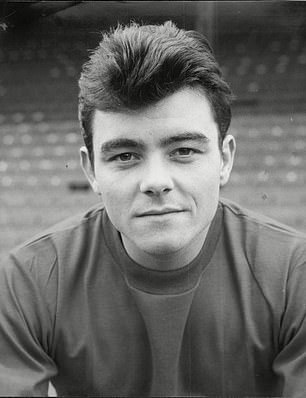
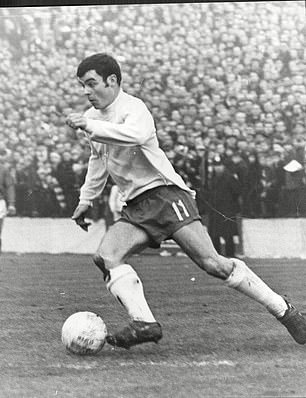
On August 21, 1965 young Charlton Athletic player Keith Peacock unwittingly made history when he replaced the injured Mike Rose against Bolton to become the game’s first sub
FA Secretary Denis Follows warned: ‘We all want to see 11 fit men on the field all the time but the rule will inevitably be abused.’
Chelsea’s chairman Joe Mears also appeared pessimistic about the idea: ‘I would not like to forecast whether the experiment will be a success,’ he said.
Yet, the radical proposal was surprisingly accepted. With declining attendances, the authorities were under pressure to give paying spectators a better product and it was felt leaving a match as 11 v 10 because of an unfortunate injury was not palatable.
Therefore, every team in all four divisions on August 21 were able, for the time, to name a 12th man in addition to their starting line-up.
Fortune decreed it was 20-year-old Peacock who ended up in the record books as the first.
When goalkeeper Rose went down injured following a collision after 11 minutes, left-back John Hewie went between the sticks and Peacock came off the bench.
Not only was the midfielder unaware he was the first substitute, he wasn’t particularly happy – still grumpy with manager Bob Stokoe that he hadn’t been included in the original line-up.
‘I was furious about being named substitute,’ he recalls. ‘I’d played in all the pre-season games and done well.
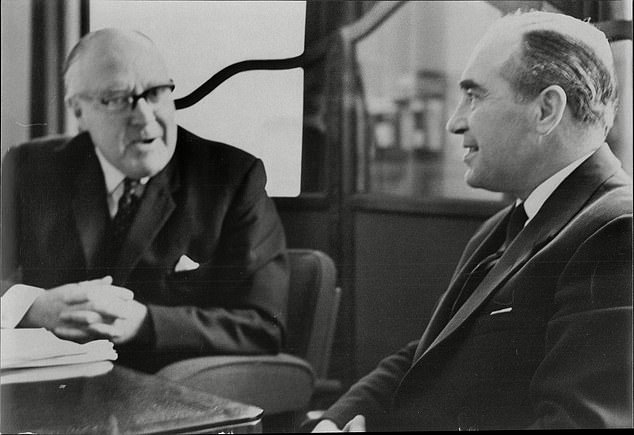
FA Secretary Denis Follows, pictured in 1967 with Sir Alf Ramsey (right), was part of the decision to allow managers to make one substitute in league matches in a 1965 experiment
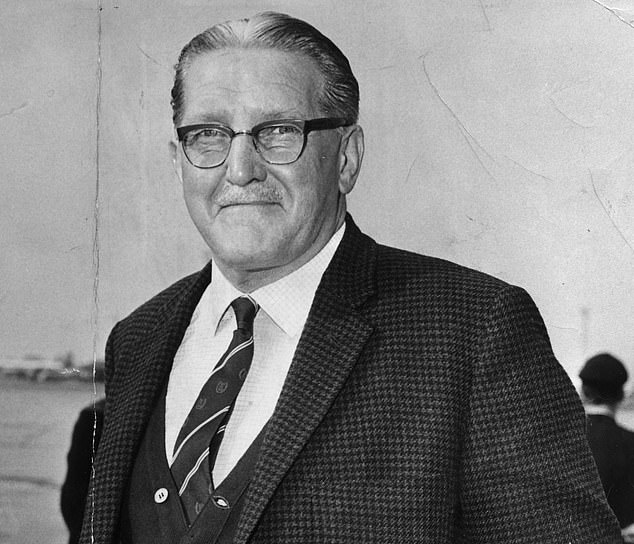
The decision was met with controversy as the football world anticipated substitutions would be abused by managers, with Chelsea’s chairman Joe Mears (above) among those pessimistic
‘So I was barely speaking to the manager Bob Stokoe and barely acknowledged him even when he signalled for me to go on.
‘There were no mobile phones or obsession with statistics. It was only on the train afterwards going back to London I learned I’d been the first player to come on.
‘I read it in the Manchester evening paper that published all the results and reports of the Saturday games.
‘Since then, it seems to have grown in importance every year! I was even a quiz answer on The Chase. I wasn’t watching but as soon as Bradley Walsh gave me as an answer, I started getting calls from friends and family to tell me.
‘Later, as a manager, I used to try and pick a versatile player who could cover a number of positions as my substitute. It was still only one allowed in the domestic league until the 1980s.
‘I can understand why the number of subs has grown in recent years but personally I wouldn’t like to see more than five changes for each team.’
The record books showed Bolton beat Charlton 4-2 in their Second Division encounter on that auspicious afternoon. Among the Wanderers scorers were future Manchester City and England star Francis Lee and Gordon Taylor, later head of the PFA.
Once the genie was out of the bottle, substitutes became part of everyday football. Two years later, in 1967, The FA allowed substitutions to be tactical, ending any need for a player to walk off with a pretend limp.
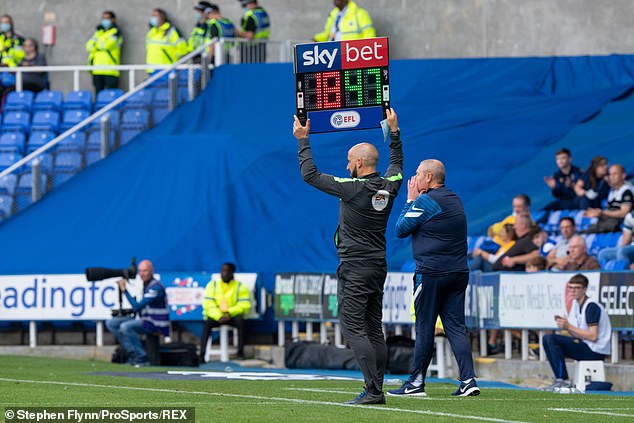
Tactical substitutions were later introduced in 1967 and have since become a regular part of everyday football, with managers using changes off the bench in order to influence matches
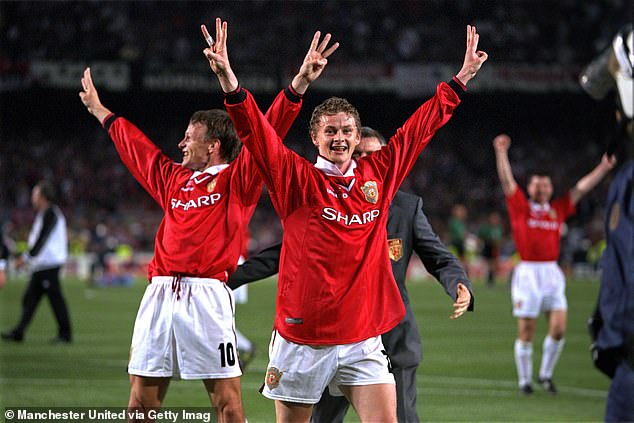
Ole Gunnar Solskjaer (centre) became perhaps one of the most famous substitutes in history in 1999 after he and Teddy Sheringham (left) scored off the bench to win Man United the Treble
The number of substitutes have increased exponentially; from one to two to three, five and now nine allowed for Premier League matches, of which five can come on.
Even in the 1970s, European games allowed five, of which two could be used. Super-sub heroes were born like Liverpool’s David Fairclough and Ole Gunnar Solskjaer who came off the bench to complete Manchester United’s Treble in 1999.
They still provides storylines. Chiesa replaced record signing Florian Wirtz when Liverpool were being held 2-2 by Bournemouth last Friday.
Jamie Carragher called it a strange swap, then u-turned as the Italian produced a lovely half-volleyed finish to put The Reds 3-2 ahead. ‘That’s why Arne Slot is a Premier League manager and I’m a pundit,’ cracked Carra.
In future years, the role of substitutes promise to become even more important with managers having to rotate players due to fatigue caused by more games and competitions.
Terms like starters and finishers are widely used to make those left out at kick off feel better than Peacock did six decades ago.
Agent Kees Vos, whose company SEG represent the likes of Cody Gakpo and Rasmus Højlund can only see the importance of substitutes further increasing.
‘Squads are having to get bigger because the amount of football we want to consume is going up but there are limitations on how much each player can do,’ he told the BBC show Business Daily.
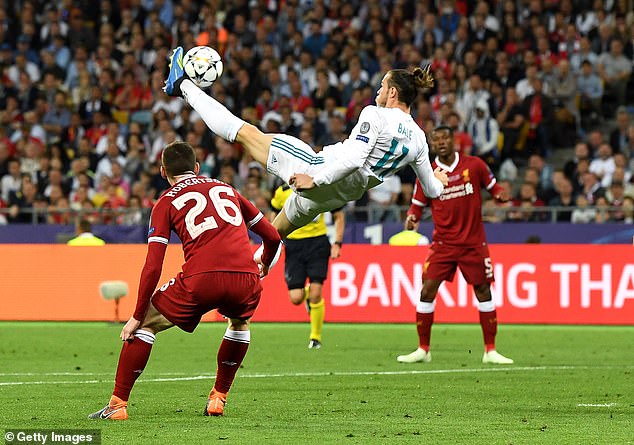
Gareth Bale scored two sensational goals off the bench to help Real Madrid win the Champions League final in 2018 against Liverpool, immortalising himself as another famous super sub
‘Look at American sports, how many players there are. they change players all the time during matches. The future of football is going to be a little bit the same.’
It has become a monster Peacock couldn’t have dreamed off when he stepped out at Burnden Park.
‘I was so disappointed not to start. I’d expected to play as my name was in the programme,’ he explains. ‘Little did I realise what a significant decision it would be.’
